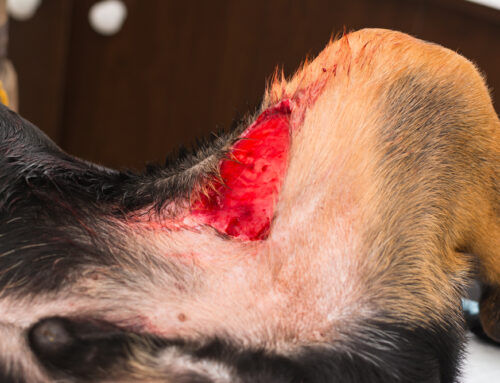Understanding Emergency Diagnostics in Veterinary Care
The Role of Emergency Diagnostics in Pet Health
At Alpine Animal Hospital in Pocatello, Idaho, we prioritize the health of your pet. Emergency diagnostics are vital tools that help us swiftly identify and address potentially life-threatening conditions. These diagnostics are essential in various situations, such as accidents, sudden illness, or severe symptoms that appear without warning.
For more information about our services, visit Alpine Animal Hospital.
Key Diagnostic Tools Used in Veterinary Emergencies
X-rays in Emergency Care
X-rays are among the first diagnostic tools used in emergencies. They provide a view inside your pet’s body, allowing us to assess bones and certain organs. This is crucial for quickly diagnosing fractures, obstructions, or other internal issues. For instance, if a pet is hit by a car, an X-ray can immediately reveal broken bones or internal bleeding, which require urgent attention.
X-rays are invaluable not only for skeletal assessments but also for evaluating the thoracic and abdominal cavities. They can reveal conditions such as pneumonia, heart enlargement, or gastrointestinal blockages, which could lead to severe complications if left untreated.
For a deeper understanding of X-ray use in veterinary medicine, visit Small Animal X-ray Diagnostic Imaging – UC Davis Vet Med.
The Growing Importance of CT Scans
CT scans offer a detailed, cross-sectional view of your pet’s body, making them superior for examining complex areas like the chest and brain. Although similar to X-rays, CT scans provide a higher level of detail crucial for diagnosing intricate conditions. They are especially useful in detecting brain tumors or complex spinal injuries that might not be visible on standard X-rays.
CT scans help in identifying the extent of injuries and planning precise surgical interventions. This advanced imaging technique is essential in emergencies involving head trauma, where rapid detection of hemorrhaging or edema can significantly influence treatment outcomes.
Learn about the differences between CT scans and X-rays at Why Does My Dog Need a CT Scan, Not a Simple X-Ray? – VetHelpDirect.
Ultrasound’s Role in Emergency Diagnostics
Ultrasound is a non-invasive procedure that uses sound waves to create images of the body’s interior. It’s particularly useful for examining soft tissues and organs, providing real-time images crucial in emergency diagnostic scenarios. For example, in cases of suspected internal bleeding or organ rupture, an ultrasound can quickly confirm fluid accumulation or organ abnormalities.
Ultrasounds are vital in assessing conditions like cardiac tamponade, where fluid around the heart restricts its function, or in identifying abdominal masses that could be causing acute pain or obstruction.
For more information on ultrasound applications in veterinary care, visit Small Animal Ultrasound Diagnostic Imaging – UC Davis Veterinary Medicine.
From Symptoms to Diagnosis: How We Approach Emergency Situations
Common Symptoms Indicating a Need for Immediate Diagnostic Testing
Recognizing symptoms that require immediate veterinary attention can be life-saving for your pet. These symptoms include severe lethargy, uncontrolled vomiting, or sudden collapse. Timely diagnostics based on these symptoms can lead to a quicker and more accurate diagnosis. For instance, sudden lethargy combined with pale gums may indicate internal bleeding or anemia, necessitating prompt intervention.
Ignoring such symptoms can result in worsening conditions, such as multi-organ failure due to shock or severe dehydration from persistent vomiting. Early diagnostics are crucial not only for identifying a condition but also for preventing its escalation.
Our Diagnostic Process During an Emergency
When you arrive at Alpine Animal Hospital, our team is prepared to manage the emergency with precision and care. The process begins with a thorough physical examination, followed by necessary diagnostic imaging. This step-by-step approach ensures a comprehensive evaluation leading to an accurate diagnosis. After initial stabilization, further tests like blood work or advanced imaging may be conducted to confirm the diagnosis and guide treatment plans.
For more information about our diagnostic processes, visit About Alpine Animal Hospital.
Why Choose Alpine Animal Hospital for Emergency Diagnostics?
Our Expertise and Advanced Diagnostic Equipment
Our veterinary team is highly qualified and deeply committed to your pet’s health and well-being. We are equipped with state-of-the-art diagnostic tools that enable precise and efficient emergency care. Our facility includes the latest imaging technologies and laboratory capabilities, ensuring rapid and accurate assessments necessary for emergencies.
Collaborative Care and Comprehensive Treatment
Understanding that each pet is a valued family member, we emphasize a collaborative approach to care. Our diagnostics inform a comprehensive treatment plan tailored to your pet’s specific needs. We prioritize clear communication, explaining each diagnostic finding and its implications, and discussing potential treatment options, including both immediate interventions and long-term management strategies.
For more details on how to reach us, visit Contact Alpine Animal Hospital.
What Pet Owners Say: Testimonials on Our Emergency Care
We are proud to share the positive experiences of pet owners who have trusted us during emergencies. Their testimonials reflect our commitment to providing exceptional care during critical times. Our clients appreciate our technical expertise, compassionate care, and the peace of mind knowing their pets are in capable hands.

Preparing for a Potential Pet Emergency: Tips for Pet Owners
Being prepared for a pet emergency can significantly impact the outcome. We recommend keeping a pet emergency kit handy and familiarizing yourself with signs indicating urgent medical attention is needed. Your kit should include basic first-aid supplies, your veterinarian’s contact information, and any specific medications your pet might require.
Additionally, understanding preventive measures can help avoid emergencies. Regular veterinary check-ups, maintaining a healthy diet, and ensuring safe environments reduce the risk of accidents or sudden illnesses. Being vigilant about changes in your pet’s behavior or physical condition can also prompt early intervention before a situation becomes critical.
Your Partner in Pet Emergency Care in Pocatello, Idaho
At Alpine Animal Hospital, we are dedicated to managing pet emergencies with expertise and compassion. We encourage all pet owners to educate themselves about emergency care and trust us with the care of their pets. Our goal is to ensure that your pet receives the best possible care, allowing for optimal recovery and long-term health.
Visit us or contact us to learn more about our emergency services and how we can help you manage your pet’s health proactively.







Leave A Comment